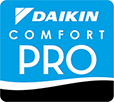Choosing the right water softener for your home is essential for maintaining your plumbing and appliances. Hard water can cause a range of issues, from building up limescale in your pipes to leaving unsightly spots on your dishes. By investing in a quality water softener, you can address these problems and enhance your water quality.
Understanding Different Types of Water Softeners
Ion Exchange Water Softeners
Ion exchange water softeners are the most common type. They work by replacing calcium and magnesium ions in the water with sodium or potassium ions. This process effectively reduces water hardness, preventing scale buildup and extending the life of your plumbing and appliances. These units typically consist of a mineral tank and a brine tank. Regular regeneration cycles help maintain their efficiency, making them a reliable choice for many households.
Salt-Free Water Softeners
Salt-free water softeners use a different approach to tackle hard water issues. Instead of removing minerals, they use a technique called template-assisted crystallization (TAC). This process changes the structure of calcium and magnesium, preventing these minerals from attaching to surfaces and forming scales. Salt-free systems are low-maintenance and eco-friendly, as they don’t require salt or wastewater discharge. They are ideal for those looking for a more sustainable option.
Dual-Tank Water Softeners
Dual-tank water softeners are designed for larger households or areas with high water hardness. These systems feature two mineral tanks, ensuring a continuous supply of soft water even during regeneration cycles. When one tank is regenerating, the other continues to provide soft water. This setup is highly efficient and ideal for homes where water demand is high, or water hardness is a significant concern.
Factors to Consider When Choosing a Water Softener
Water Hardness Level
Understanding the hardness level of your water is the first step in choosing the right water softener. You can easily test your water using a home test kit or by consulting with our professionals. Hard water levels vary, and knowing your specific situation helps in selecting a system that effectively meets your needs. A properly chosen water softener will efficiently reduce hardness and protect your plumbing.
Household Size and Water Usage
The size of your household and your typical water usage are critical factors. Larger households with higher water usage require more robust systems to ensure a constant supply of soft water. Consider the capacity of the water softener and its regeneration process to match your household’s daily needs. An inadequately sized system may struggle to keep up with demand, leading to inefficient performance.
Budget and Maintenance Costs
Budget plays a significant role in choosing a water softener. Initial costs vary widely depending on the type and capacity of the system. Additionally, consider long-term maintenance costs, including salt for ion exchange systems or potential cartridge replacements for salt-free systems. Factor in installation costs and any professional services required. Choosing a water softener that fits within your budget while meeting your needs ensures a cost-effective solution for water quality issues.
Selecting the right water softener involves evaluating your water hardness level, household size, and budget. By understanding these factors and the different types of water softeners available, you can make an informed choice tailored to your home’s needs.
Installation and Maintenance Requirements
Professional Installation vs. DIY
Choosing between a professional installation and a DIY approach depends on your comfort level and the complexity of the water softener system. Professional installation ensures that the system is set up correctly and efficiently. Our professionals have the skills and tools necessary to install the unit, test it, and ensure it operates properly. This also often includes a warranty on the installation, providing you peace of mind. On the other hand, if you have experience with plumbing, a DIY installation can save money. However, it’s essential to follow the manufacturer’s instructions closely to avoid mistakes that could lead to future issues.
Regular Maintenance Practices
Regular maintenance is key to the longevity and efficiency of your water softener. For ion exchange systems, this includes replenishing the salt supply and periodically cleaning the brine tank to prevent salt bridges. Salt-free systems generally require less maintenance but still benefit from occasional checks to ensure everything is working correctly. Dual-tank systems need alternating maintenance on each tank to ensure continuous operation. Regular inspection and upkeep keep your water softener running smoothly and extend its lifespan.
Lifespan and Replacement
Understanding the expected lifespan and when to replace your water softener is crucial. Typically, water softeners last between 10 to 15 years, depending on usage and maintenance. Signs that a replacement may be needed include reduced water flow, poor water quality, and frequent repairs. Proactive monitoring and routine maintenance can help you identify issues early and plan for a timely replacement, ensuring your home continues to benefit from softened water.
Benefits of Using Water Softeners in Your Home
Prolonging Appliance Lifespan
One of the primary benefits of using water softeners is the prolonged lifespan of home appliances. Hard water can cause scale buildup in appliances like dishwashers, washing machines, and water heaters. This buildup forces appliances to work harder, leading to wear and tear. A water softener removes these minerals, reducing strain on your appliances and helping them last longer.
Improving Water Quality
Softened water improves the overall quality of your household water. Hard water can leave soap scum on dishes and surfaces, making cleaning tasks more challenging. Softened water interacts better with soaps and detergents, resulting in cleaner dishes, laundry, and surfaces. It also feels better on your skin and hair, providing a more pleasant experience when bathing or showering.
Reducing Energy Costs
Using water softeners can lead to significant energy savings. Scale buildup in water heaters and boilers caused by hard water reduces their efficiency, leading to higher energy consumption. Softened water prevents this buildup, allowing these systems to operate more efficiently. This can lower your energy bills and contribute to a more sustainable household.
Conclusion
Choosing the right water softener is essential for maintaining the quality and efficiency of your home’s water system. By understanding the different types of water softeners and considering factors like water hardness, household size, and budget, you can make an informed decision. Proper installation and regular maintenance ensure the system’s effectiveness and longevity, while the benefits of using water softeners, such as prolonging appliance lifespan, improving water quality, and reducing energy costs, make them a worthwhile investment.
For expert advice and professional installation, contact Holy City Heating & Air, LLC. Our professionals are ready to help you select and maintain the best water softener in Daniel Island for your home. Call us today to ensure your home enjoys the benefits of softened water.






